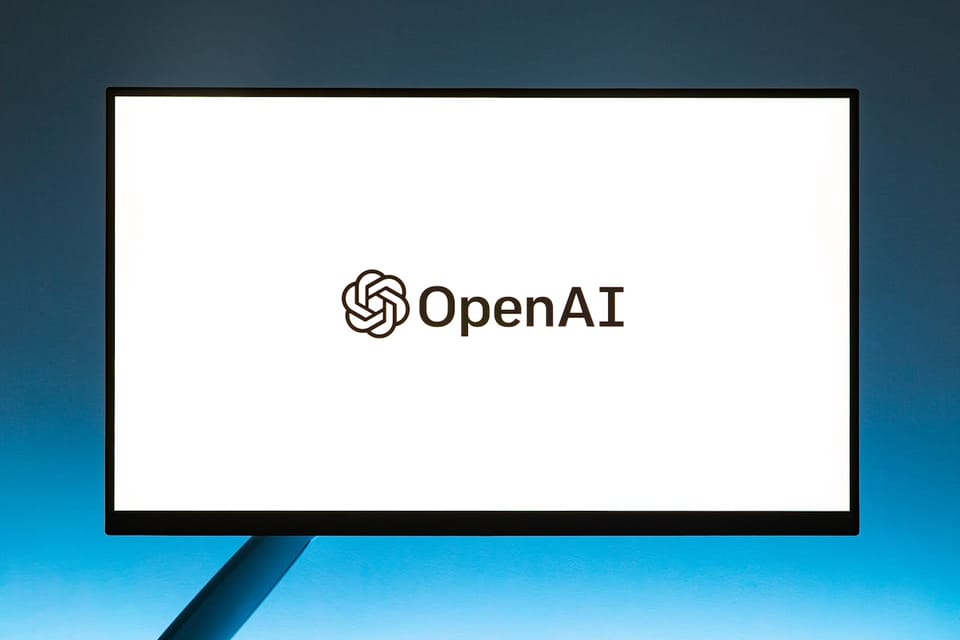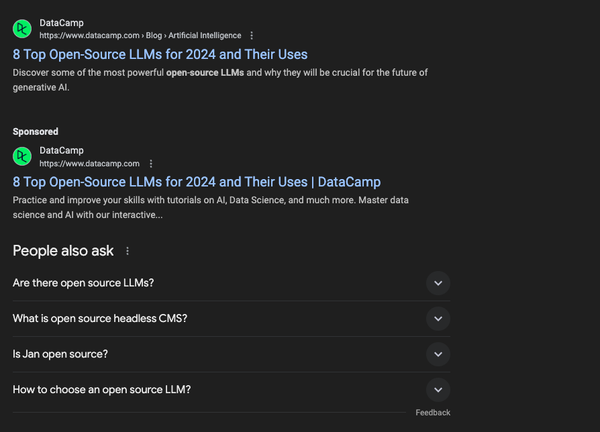Why Generative Engine Optimization (GEO) is the Future of Search – And Why Google Isn’t Always the First Choice Anymore
Table of Content
In the world of digital content creation and search engine optimization (SEO), there has been a shift in how we approach content and how we expect to find it. The evolution of AI-driven search engines like DeepSeek, ChatGPT, and Perplexity.ai has changed the way people search for information. Gone are the days when Google was the ultimate source for answers to all of our questions.
With AI-driven engines that offer personalized, context-driven recommendations, it’s no wonder that people are beginning to question the relevance of traditional search engines. But will this shift in search technologies and how we write for them affect the future of SEO?

While I am still a frequent Google user, I’ll admit it is no longer my first go-to. The increasing bloating of Google’s search engine and its heavy focus on biased threads, especially from platforms like Reddit and Quora, often leaves well-documented articles buried under a sea of less reliable content.
To some, this could signal a future where SEO and content writing as we know it may need a fundamental overhaul. Enter Generative Engine Optimization (GEO) – the next frontier in content creation and search.
What is Generative Engine Optimization (GEO)?
Generative Engine Optimization (GEO) is a newer concept in the world of digital marketing. Unlike SEO, which is primarily focused on optimizing a website's content to be more discoverable by traditional search engines, GEO shifts focus toward optimizing content for generative engines. These are engines powered by AI, capable of not just searching for content but also generating answers and suggestions based on the context of the search query.
For instance, AI engines like ChatGPT or Perplexity.ai don’t simply return a list of links; instead, they synthesize answers and offer insights in real-time based on what they’ve “learned” from a vast array of sources.
So, how is GEO different from SEO? SEO relies on algorithms designed to index content based on specific keywords, backlinks, and other technical factors. It’s about ranking pages higher in traditional search results to ensure visibility. GEO, on the other hand, focuses on the quality, relevance, and contextual depth of content to ensure that AI engines can generate meaningful, accurate, and personalized answers for users.
GEO optimizes content in such a way that it enhances the AI’s ability to generate answers that feel human-like and relevant.
Where SEO focuses on optimizing for keywords, metadata, and backlinks, GEO aims to optimize for the algorithms behind generative AI tools.
This includes improving content structure, clarity, and personalization, which makes it more likely for generative engines to select and summarize the content for users.
Will GEO Affect Your Search Results?
This shift toward GEO raises an important question: will it affect your search results? The short answer is yes, but it’s essential to understand how this will happen. Search engines powered by generative AI aim to return content that aligns with a user’s query, not just in terms of keywords but in a deeper, more contextual way.
For content creators and marketers, this means a new challenge: moving beyond SEO-focused content creation and learning to craft articles that can be used by generative engines to generate meaningful answers.
For instance, instead of writing an article optimized to rank for specific keywords or phrases, a content creator using GEO will focus on the overall depth and clarity of the content, ensuring that generative engines can use it to formulate responses directly to a query.
This means moving away from “clickbait” headlines that are designed to grab attention but may not align with the true needs of the searcher.
For a content writer, learning GEO is not just about improving search engine rankings—it’s about making sure that AI systems can take the content and generate insightful, detailed responses based on what users want to know.
In the coming years, SEO may still play a role in helping websites rank, but GEO could determine whether or not AI systems use your content to provide the answers people need.
The Shift Away from Google
There’s no denying that Google’s search engine has been the go-to for decades. But, as it has evolved, many have found it increasingly bloated and skewed toward content that doesn’t always offer the most accurate or reliable information.
Platforms like Reddit and Quora, while often helpful, have introduced bias that can cloud a search result’s credibility.
As more people look for answers that go beyond traditional search results, AI-driven engines like Perplexity.ai and DeepSeek have begun to offer an alternative. These tools provide personalized recommendations based on the searcher's query, allowing users to find more relevant and tailored answers. In my experience, I find myself using Google less often now because I get more direct, context-aware results from these AI engines.
However, despite this shift, I still use Google occasionally. It’s hard to abandon such an ingrained habit completely. But, with the rise of generative AI-driven search tools, it's becoming clear that people will eventually rely more on these advanced engines for more accurate and comprehensive information.
Understanding the Shift from SEO to GEO – How Content Creators Can Prepare for AI-Driven Search
With the growing influence of artificial intelligence in search engines, it’s essential for content creators to rethink how they approach optimization. The traditional methods of SEO are slowly being overshadowed by a new way of optimizing content: Generative Engine Optimization (GEO).
But what’s the real difference between SEO and GEO, and how does it impact how you write your content? Let’s dive into the key differences between SEO and GEO and explore why you should consider GEO in your content strategy for the future of search.
| Aspect | SEO (Search Engine Optimization) | GEO (Generative Engine Optimization) |
|---|---|---|
| Content Structure | SEO content is designed with humans in mind, focusing on keyword-rich text that’s easy to scan. The structure is crafted to improve readability and help Google’s crawlers understand the content. | GEO, however, prioritizes content clarity and deep contextual relevance. The structure ensures AI systems can easily parse the information and generate meaningful, accurate responses. |
| Purpose | The main goal of SEO is to get your content to rank higher on traditional search engine result pages (SERPs). It's about improving visibility through keyword usage and technical optimization. | GEO’s goal is to make your content more compatible with AI-driven engines, allowing them to extract data and generate personalized, context-specific answers rather than just listing results. |
| Target Audience | SEO is primarily aimed at human users searching for information. Content is optimized for their needs and search intent based on keywords. | GEO focuses on AI engines, ensuring that the content can be processed and used to generate accurate, personalized responses based on user queries. |
| Optimization Techniques | SEO involves strategies such as keyword research, meta tags, backlinks, and site speed improvements. The emphasis is on ranking well in Google’s results. | GEO takes a different approach, optimizing content for depth, clarity, and organization. It's designed for AI to easily synthesize answers based on user context rather than keyword density. |
| Algorithm | SEO relies on algorithms designed by search engines like Google. These algorithms assess the relevance of content based on ranking factors such as backlinks, site authority, and keyword optimization. | GEO is powered by AI algorithms that understand the context of content. These algorithms focus on how well the content can be used to generate answers or insights directly from the text itself. |
| Search Results | SEO results lead to a list of websites where users click on links to find the answers they need. Rankings are determined by factors like backlinks, authority, and keyword targeting. | GEO doesn’t just provide links. It delivers AI-generated responses directly from the content, offering users answers in real-time without having to browse through pages of results. |
| Personalization | SEO often fails to deeply personalize results. It's about optimizing for broad search terms that appeal to a general audience. | GEO places a stronger emphasis on personalization. Content is optimized to ensure that AI systems can tailor answers specifically to the user’s query, context, and intent. |
| Main Goal | SEO’s purpose is to increase the visibility of your content and ensure it ranks well on search engine results pages, ultimately driving traffic to your site. | GEO’s main goal is to enable AI engines to deliver meaningful, personalized answers directly from your content, improving user experience by delivering relevant information instantly. |
| Key Metrics | Success in SEO is typically measured by rankings, organic traffic, and engagement metrics like clicks, impressions, and backlinks. | In GEO, success is measured by how effectively AI can generate relevant, personalized responses from your content, and how well users engage with those AI-generated insights. |
| Focus | SEO revolves around optimizing your content for traditional search engines. This means prioritizing keywords, backlinks, and site authority to improve your ranking. | GEO focuses on the internal quality of the content, ensuring it is structured in a way that AI engines can understand and use to generate accurate, context-driven answers. |
As you can see, SEO and GEO are distinct in their approach, focusing on different optimization strategies depending on whether you're targeting search engines or AI systems. While SEO will continue to play a role in driving traffic to websites, GEO is quickly becoming essential for ensuring your content is compatible with AI-driven search engines that prioritize context and personalized results.
Adapting to GEO may take time, but it’s clear that as AI continues to shape the future of search, content creators need to rethink their strategies and focus on delivering meaningful, contextually-rich content that AI engines can leverage to generate valuable responses.
With the shift to AI-driven search, GEO is no longer a luxury but a necessity for staying relevant in an evolving digital landscape.
How Can Content Creators Adapt to GEO?
If you’re a content creator or marketer, now is the time to start thinking about how to optimize for generative engines. Mailchimp recently released a helpful guide on Generative Engine Optimization (GEO), which is an excellent starting point for content creators looking to adapt to these changes. According to their recommendations, content creators need to shift their approach to writing in order to make their content more compatible with the new world of AI-driven search engines.
Here are some of the key recommendations for GEO:
- Focus on Intent: Understanding and addressing the user's intent is more important than ever. GEO emphasizes writing content that addresses the specific needs or questions a user might have, instead of just ranking for specific keywords.
- Improve Clarity and Structure: With GEO, the way content is structured is critical. For generative engines to use the content to provide responses, it must be well-organized, clear, and easy to follow. This might mean breaking long paragraphs into smaller, digestible chunks or using bullet points to highlight key insights.
- Personalize the Content: Personalization is at the heart of GEO. Since AI tools aim to tailor responses based on individual search queries, content should be written with the intent of meeting users at various stages of their journey. Offering a variety of perspectives and insights ensures the content remains versatile and usable by AI engines.
- Write for Depth, Not Just Keywords – The old SEO adage of “writing for the search engine” is no longer enough. GEO prioritizes depth and context. Content creators should aim to provide thorough, well-researched, and informative answers to potential queries. Don’t just skim the surface—dive deep.
- Optimize for Voice Search and Conversational AI – With the rise of voice-activated devices and AI assistants, writing in a conversational tone can help your content be more accessible to AI-driven search engines. GEO will likely reward content that is structured in a way that mimics natural, spoken language.
The Future of Search and Content Writing
As generative AI engines gain traction, the future of search is becoming less about traditional keyword-based results and more about the quality of the answers provided. For content writers, the role will be less about optimizing for a list of ranking factors and more about creating content that resonates with AI tools, ensuring that it can be used to generate meaningful responses.
While SEO may still be relevant for some time, the real future of search lies in Generative Engine Optimization. As generative engines become smarter, they will drive more personalized search results, and the content you create will need to adapt to this new reality. GEO represents the next evolution of search optimization, moving away from technical keyword manipulation and toward writing for context, relevance, and user experience.
The key takeaway for content creators is that we must evolve our approach. As search engines change, so too must our strategies for writing. By focusing on GEO, we can create content that will stand the test of time and be useful for the intelligent engines that power the next wave of search.
Related Articles:
- How Google Messed Up Its Search
- It Is Not Too Late for Google to Recover
- Generative Engine Optimization – Mailchimp












